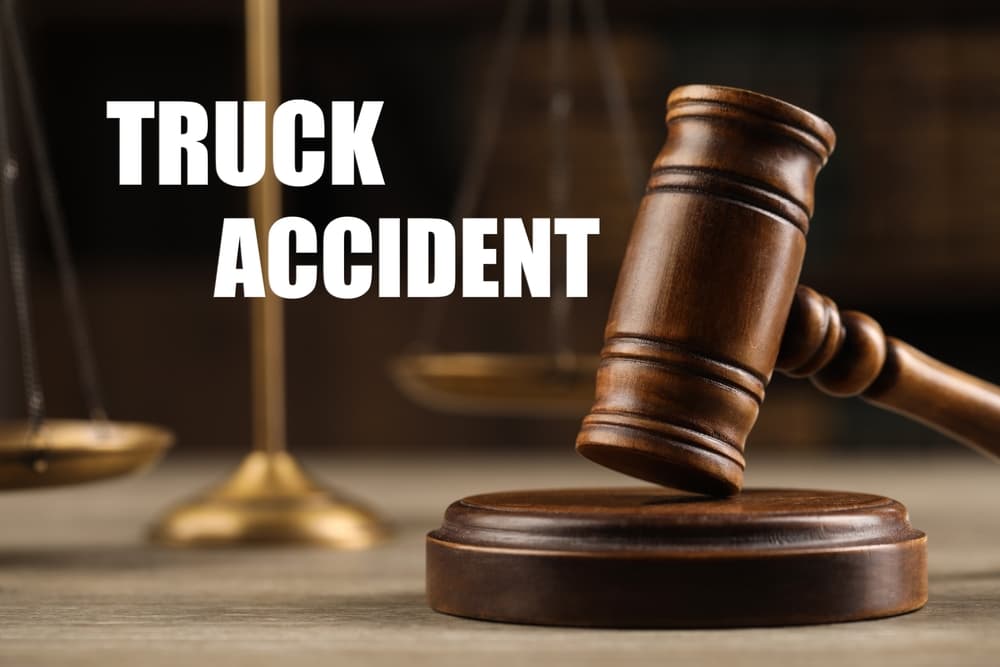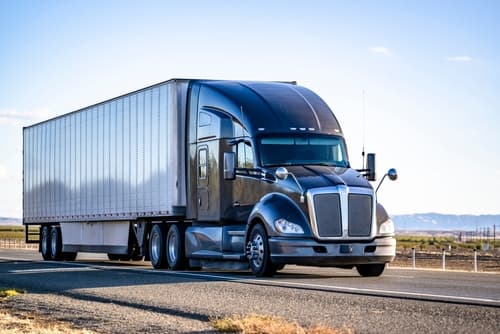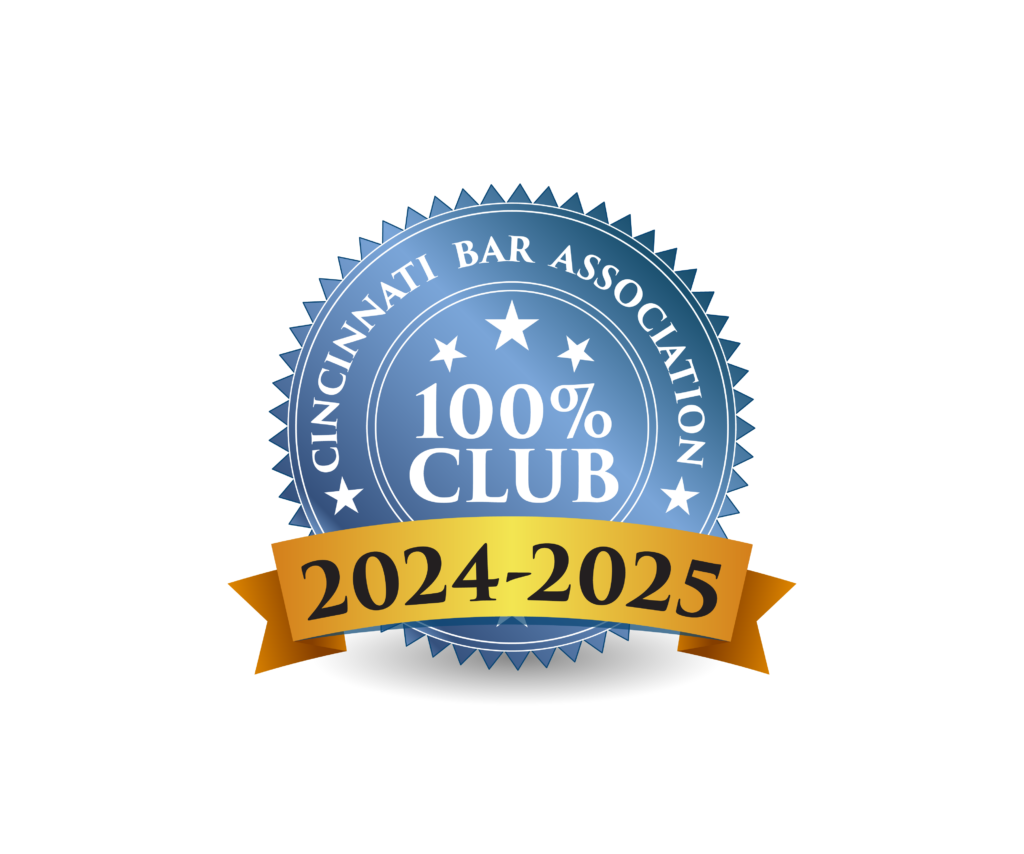
A truck accident can cause severe injuries or the loss of a loved one. Such incidents often leave victims and their families grappling with immense challenges. Unlike typical vehicle collisions, truck accidents involve intricate legal and regulatory issues that can complicate the pursuit of justice and compensation. This complexity underscores why you need a truck accident lawyer to guide you through the process.
If you sustained injuries or lost a close family member in a truck accident in Ohio, contact a knowledgeable truck accident lawyer in your area to understand your rights and options.
Truck Accident Statistics in Ohio
Truck accidents in Ohio present a significant concern, reflecting the broader national issue of large vehicle collisions. According to the Ohio State Highway Patrol’s Crash Dashboard:
- In a recent year, 15,930 crashes occurred involving commercial vehicles.
- 4,000 crashes occurred in work zones.
- The most dangerous roads for accidents in Ohio include the interstate highways ( I-75, I-70, I76, I-77, and I-90), as well as US-20 and US-42.
- More than 1,000 people died in traffic accidents throughout Ohio, while more than 63,000 people sustained some sort of injury.
These statistics highlight the prevalence and severity of truck-related incidents on Ohio's roadways and emphasize the importance of legal representation when someone else’s negligence causes a collision.
The Unique Nature of Truck Accidents
Truck accidents differ markedly from standard automobile collisions due to several critical factors.
Size and Weight Disparities Between Trucks and Passenger Vehicles
Commercial trucks, especially semi-trailers, can weigh up to 80,000 pounds when fully loaded, whereas the average passenger vehicle weighs around 3,000 pounds. This significant difference means that in collisions, passenger vehicles are at a considerable disadvantage, often leading to more severe damage and injuries.
Increased Severity of Injuries and Property Damage
The massive size and weight of trucks contribute to the heightened severity of accidents. Victims involved in truck collisions frequently endure serious injuries, including traumatic brain injuries, spinal cord damage, and multiple fractures. The financial implications encompass extensive medical treatments, rehabilitation, and substantial property damage.
Multiple Parties Potentially Liable
Truck accidents often involve more than just the driver. Unlike typical car accidents, where fault usually rests with one or both drivers, truck accident liability can extend to multiple parties. Holding all responsible parties accountable is key to securing full compensation.
- Truck Drivers: Driver negligence frequently plays a role in truck accidents. Speeding, distracted driving, fatigue, and impaired driving are common causes. Even though federal regulations limit driving hours, some truckers push beyond legal limits to meet delivery deadlines. A detailed investigation into the driver’s actions, training, and compliance with regulations helps determine their level of fault.
- Trucking Companies: Trucking companies bear responsibility for hiring qualified drivers, enforcing safety regulations, and maintaining vehicles. When companies cut corners—such as failing to conduct background checks, encouraging unsafe driving practices, or skipping required maintenance—they can be held liable for resulting accidents.
- Cargo Loaders and Shipping Companies: Improperly loaded cargo can create serious hazards. Overloaded trucks require longer stopping distances, while unbalanced loads increase the risk of rollovers. Companies responsible for loading cargo must follow weight distribution regulations to prevent accidents. If shifting or unsecured cargo contributes to a crash, liability may extend to the parties responsible for loading the truck.
- Truck and Parts Manufacturers: Defective truck components—such as brakes, tires, or steering systems—can lead to catastrophic accidents. If a manufacturing defect or design flaw played a role in the crash, the company that produced the faulty part may share liability. Attorneys often work with mechanical experts to identify product failures and hold manufacturers accountable.
- Maintenance and Repair Companies: Trucking companies often outsource vehicle maintenance. When mechanics fail to properly inspect or repair trucks, they may be held responsible if a mechanical failure contributes to an accident. Brake failures, tire blowouts, and steering malfunctions are common issues that result from negligent maintenance.
Identifying all liable parties strengthens a truck accident claim and increases the chances of securing full compensation. A truck accident attorney conducts thorough investigations, uncovers safety violations, and holds every responsible party accountable.
Navigating Complex Regulations
The trucking industry operates under stringent regulations designed to ensure safety on the roads.
Federal Regulations Governing the Trucking Industry (FMCSA Rules)

The Federal Motor Carrier Safety Administration (FMCSA) establishes comprehensive regulations covering various aspects of trucking operations, including driver qualifications, vehicle maintenance, and safety protocols. Compliance with these regulations is mandatory and plays a pivotal role in accident investigations.
Hours of Service Requirements and Logbook Analysis
To mitigate driver fatigue, the FMCSA enforces Hours of Service (HOS) regulations that limit the number of hours a driver can operate a commercial vehicle without rest. Drivers are required to maintain detailed logbooks tracking their driving and rest periods. Analyzing these logs can uncover violations that may have contributed to an accident.
Maintenance and Inspection Requirements
Regular maintenance and inspections are mandated to ensure that trucks are in safe operating condition. Failure to adhere to these requirements can result in mechanical failures leading to accidents. Maintenance records are essential evidence in establishing negligence related to vehicle upkeep.
Evidence Collection and Preservation
Prompt and thorough evidence collection is vital in building a strong case following a truck accident.
The Importance of Immediate Investigation
Timely investigations help preserve critical evidence that might otherwise be lost or degraded. This includes securing witness statements, photographs of the scene, and physical evidence from the vehicles involved.
Types of Evidence Specific to Truck Accidents (Black Box Data, Logbooks)
Unique to commercial trucks is the presence of electronic control modules, commonly known as "black boxes," which record data such as speed, braking patterns, and engine performance. Additionally, drivers' logbooks provide insights into compliance with HOS regulations. These pieces of evidence are instrumental in reconstructing the events leading up to the accident.
How a Truck Accident Attorney Preserves Crucial Evidence
An experienced attorney understands the necessity of issuing spoliation letters to prevent the destruction of evidence and can coordinate with experts to analyze data effectively. This proactive approach ensures that all pertinent information is available for your case.
Determining Liability
Establishing who is responsible for a truck accident requires meticulous investigation.
Multiple Potentially Responsible Parties
As previously discussed, liability may extend beyond the truck driver to include trucking companies, manufacturers, and even third-party maintenance providers. Each party's role must be scrutinized to determine their contribution to the accident.
Corporate Defense Teams and Insurance Companies
Trucking companies and their insurers often have robust legal teams dedicated to minimizing their financial exposure. They may employ tactics to shift blame or downplay the severity of the incident. Having a skilled attorney on your side is essential to counter these strategies and advocate for your interests.
How Truck Accident Attorneys Identify All Liable Parties

Attorneys utilize their knowledge and resources to conduct comprehensive investigations, which may involve:
- Reviewing Maintenance Records: To identify negligence in vehicle upkeep.
- Analyzing Employment Practices: To uncover inadequate hiring or training procedures.
- Consulting Experts: Such as accident reconstructionists to provide professional insights into the cause of the accident.
This thorough approach ensures that all responsible parties are held accountable.
Calculating Full Compensation
You must have a lawyer thoroughly assess your damages to obtain fair compensation.
Medical Expenses (Current and Future)
Compensation should cover all medical costs, including emergency care, surgeries, rehabilitation, and ongoing treatments. Future medical expenses should also be considered, particularly for injuries requiring long-term care.
Lost Wages and Diminished Earning Capacity
Truck accident injuries can keep victims from working for extended periods. Compensation should account for lost wages during recovery as well as diminished earning capacity if injuries prevent a return to the same level of employment.
Pain and Suffering, Emotional Trauma
Beyond financial losses, victims endure significant suffering. Compensation should reflect the physical pain, emotional distress, and mental anguish resulting from the accident.
Long-Term Care Needs
Some injuries lead to permanent disabilities requiring home modifications, assistive devices, or in-home medical care. These long-term expenses should be factored into any settlement or court award.
Negotiating with Insurance Companies
Insurance companies representing trucking firms prioritize minimizing payouts. They use various tactics to reduce settlements, making strong legal representation necessary.
Tactics Used by Trucking Company Insurers
Insurance adjusters may attempt to downplay injuries, argue pre-existing conditions contributed to harm, or delay claims in hopes the victim will accept a lower offer. Some insurers pressure victims into recorded statements that can later be used against them.
Why Initial Settlement Offers Are Often Inadequate
Early settlement offers rarely reflect the full extent of damages. They often cover immediate medical expenses but fail to account for ongoing care, lost earning capacity, and non-economic damages like pain and suffering.
How an Attorney Levels the Playing Field
An attorney negotiates aggressively to ensure compensation reflects the true impact of the accident. Legal representation signals to insurers that lowball offers won’t be accepted and that the case will proceed to court if necessary.
The Investigation Process
Building a strong case requires a detailed investigation. Your attorney can draw on a variety of sources to support and strengthen your claim.
Accident Reconstruction
Reconstruction experts analyze crash dynamics to determine factors such as speed, braking patterns, and impact force. These findings provide essential evidence when liability is disputed.
Expert Witnesses (Medical, Trucking Industry)
Medical experts testify about the extent of injuries and necessary treatments. Trucking industry experts clarify safety violations and regulatory breaches that may have contributed to the crash.
Timeline of a Typical Truck Accident Case
Cases progress through several stages, including evidence gathering, negotiations, and potentially litigation. While some cases settle quickly, others require extensive litigation to secure fair compensation.
Legal Deadlines and Requirements
Truck accident claims must be filed within strict legal timeframes. Missing a deadline can result in losing the right to seek compensation. Understanding these deadlines and requirements ensures that victims take the necessary steps to protect their claims.
Statute of Limitations for Truck Accident Claims
In Ohio, truck accident victims generally have two years from the date of the accident to file a personal injury lawsuit. This statute of limitations applies to claims for medical expenses, lost wages, pain and suffering, and other damages. If a lawsuit is not filed within this period, the court may dismiss the case, preventing any recovery.
Special Rules for Government-Owned Trucks
Accidents involving government-owned trucks, such as city, county, or state vehicles, often have shorter deadlines and additional notice requirements. In Ohio, claims against government entities require filing a formal notice within a specific timeframe, sometimes as short as six months. These claims also involve different legal procedures, making early legal action even more important.
Notice Requirements That May Apply
Certain trucking companies or government agencies require accident victims to file a formal notice of claim before pursuing compensation. These notices typically include details about the accident, injuries sustained, and the compensation sought. Failure to submit this notice within the required timeframe can jeopardize a claim.
Why Acting Quickly Matters
The longer a victim waits to take legal action, the harder it becomes to build a strong case. Evidence disappears, witnesses become harder to track down, and insurance companies gain an advantage. Early investigation allows attorneys to secure critical evidence, such as black box data, driver logs, and maintenance records before they are lost or destroyed.
Truck accident victims should not delay in seeking legal advice. Speaking with an attorney as soon as possible ensures compliance with all deadlines and preserves the right to pursue full compensation.
Contact O’Connor Acciani & Levy Today

Truck accident victims deserve strong legal advocacy. O’Connor Acciani & Levy provides dedicated representation to injured individuals and their families in Ohio. Our firm has a proven track record of securing compensation for victims of negligence.
By handling all legal aspects of your claim, we allow you to focus on your recovery. Our legal team gathers evidence, consults experts, and negotiates aggressively with insurers to pursue the best possible outcome.
Contact O’Connor Acciani & Levy today for a free consultation to learn how we can protect your rights and help you obtain the maximum compensation you deserve.